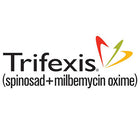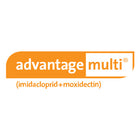Are you worried about your dog’s health but unsure where to start? As a pet owner, it's natural to feel overwhelmed by the potential health issues your dog might face.
The range of ailments can be intimidating from itchy skin to life-threatening diseases.
But here's the good news: Understanding these diseases and knowing how to treat them is the first step toward ensuring your furry friend leads a long, healthy, and happy life.
Did you know that U.S. pet owners spent $38.3 billion on veterinary care and product sales in 2023 alone? (Source:APPA)
This underscores pet owners' growing awareness and dedication to ensuring their pets receive the best care possible.
But with so many potential ailments, where do you begin? Whether your dog is dealing with a simple skin allergy or something more severe like heartworm or cancer, understanding these conditions and their treatments is vital.
This guide is designed with you in mind—whether you're a seasoned pet owner or a new dog parent. We’ll walk you through a comprehensive A to Z list of common and severe dog ailments, providing detailed insights into each condition and its respective treatment options.
We’ll also discuss preventive care strategies, the importance of early detection, and what to do in an emergency.
By the end of this guide, you'll be equipped to recognize signs of illness in your dog, understand the treatments available, and take proactive steps to prevent many of these conditions. So, let’s dive in and ensure your furry friend stays healthy and happy!
A to Z Dog Diseases that Every Pet Owner Must Know
|
S.no |
Disease |
Symptoms |
Affected Areas |
Key Considerations |
|
1 |
Arthritis and Joint Problems |
Limping, stiffness, difficulty standing, reduced activity |
Joints (hips, knees, elbows) |
Common in older dogs; often treated with pain management, weight control, and sometimes surgery. Consider adding joint care supplements to your dog's routine to support their |
|
2 |
Autoimmune Diseases |
Weakness, lethargy, skin lesions, joint pain |
Immune system, skin, joints, organs |
It includes conditions like lupus; treatment often involves immunosuppressants and supportive care. Managing autoimmune diseases may require specialized immune system support. |
|
3 |
Canine Cancer |
Lumps, swelling, weight loss, lethargy |
Various organs (skin, lymph nodes, bones) |
It can be malignant; treatment options include surgery, chemotherapy, and radiation. Early intervention with anti-cancer treatments can improve outcomes. |
|
4 |
Canine Distemper |
Fever, nasal discharge, coughing, seizures |
Respiratory, gastrointestinal, nervous |
Highly contagious; vaccination is the best prevention. It can be fatal if not treated early. Keep your dog protected with vaccinations. |
|
5 |
Canine Influenza |
Coughing, sneezing, fever, nasal discharge |
Respiratory system |
Highly contagious respiratory illness; supportive care and vaccination are key preventive measures. Consider using respiratory support supplements during flu season. |
|
6 |
Canine Parvovirus |
Severe vomiting, bloody diarrhea, lethargy |
Gastrointestinal tract |
Highly contagious and often fatal in puppies; Requires aggressive treatment with fluids and hospitalization. Prevent this deadly virus with the appropriate vaccination schedule. |
|
7 |
Dental Diseases (including Periodontal Disease) |
Bad breath, loose teeth, difficulty eating |
Teeth and gums |
Common in older dogs; regular dental care and cleaning are crucial to prevent further complications. Regular dental care products can help maintain oral health. |
|
8 |
Diabetes |
Increased thirst, frequent urination, weight loss |
Endocrine system |
Often managed with insulin therapy and dietary changes. Regular monitoring is essential. Ensure proper diabetes supplies for uninterrupted treatment. |
|
9 |
Diarrhea and Vomiting |
Loose stools, dehydration, lethargy |
Digestive system |
Can be caused by various factors including infections, diet changes, or parasites. Treatment depends on the underlying cause. Stock up on digestive health products to support recovery. |
|
10 |
Ear Infections |
Head shaking, ear scratching, odor, discharge |
Ears (outer, middle, inner) |
Common in breeds with floppy ears; It requires cleaning and sometimes antibiotics. Use specialized ear care products to prevent and treat infections. |
|
11 |
Fleas |
Itching, scratching, red bumps |
Skin |
External parasite; control requires flea prevention and treatment of the environment and pets. Keep your dog flea-free with effective flea and tick treatments. |
|
12 |
Heart Disease |
Coughing, difficulty breathing, fatigue |
Heart |
Common in older dogs; management includes medication, diet changes, and sometimes surgery. Consider using heart supplements to support your dog’s cardiovascular health. |
|
13 |
Heartworm |
Coughing, fatigue, weight loss, heart failure |
Heart, lungs |
Spread by mosquitoes; prevention with monthly medication is key. Treatment is complex and can be risky. Prevent heartworm with monthly preventatives. |
|
14 |
Hip Dysplasia |
Lameness, difficulty standing, bunny hopping |
Hips |
Genetic condition common in large breeds; managed with weight control, physical therapy, and surgery. Enhance your dog’s mobility with joint support supplements. |
|
15 |
Intestinal Parasite Infection |
Diarrhea, weight loss, vomiting |
Gastrointestinal tract |
Caused by parasites like roundworms, and hookworms; requires deworming and environmental control. Regular use of parasite control products can prevent infestations. |
|
16 |
Kennel Cough |
Dry hacking cough, retching, sneezing |
Respiratory system |
Highly contagious; vaccination can prevent it. Treatment includes rest and sometimes antibiotics. Protect your dog with vaccinations against kennel cough. |
|
17 |
Leptospirosis |
Fever, muscle pain, vomiting, jaundice |
Kidneys, liver |
Bacterial infection; can be fatal without treatment. Vaccination is available. |
|
18 |
Obesity |
Weight gain, difficulty moving, lethargy |
Entire body |
This leads to various health issues; managed with diet, exercise, and sometimes medication. Manage your dog’s weight with healthy foods and exercise. |
|
19 |
Otitis Media |
Head shaking, ear scratching, balance issues |
Middle ear |
Often follows outer ear infections; treated with antibiotics and ear cleaning. Use ear care products to keep infections at bay. |
|
20 |
Rabies |
Behavioral changes, drooling, paralysis |
Nervous system |
Fatal viral disease; vaccination is mandatory in many areas. No treatment once symptoms appear. Ensure your dog is vaccinated with the proper rabies shots. |
|
21 |
Ringworm |
Circular patches of hair loss, red skin |
Skin, hair, nails |
Fungal infection; requires antifungal treatment. Highly contagious to humans and other animals. Treat and prevent fungal infections with anti-fungal products. |
|
22 |
Skin Allergies and Dermatitis |
Itching, redness, hair loss, scabs |
Skin |
Caused by allergens, parasites, or diet; managed with medication and dietary changes. Soothe your dog’s skin with allergy relief products. |
|
23 |
Tick-Borne Diseases |
Fever, lameness, joint pain, lethargy |
Blood, joints, organs |
Includes diseases like Lyme disease; prevention is key, and treatment involves antibiotics. Protect your dog from ticks with tick prevention products. |
|
24 |
Tooth Pathology |
Painful chewing, drooling, bad breath |
Teeth and gums |
Includes abscesses and broken teeth; requires dental intervention and sometimes extraction. Maintain your dog’s oral health with regular dental care. |
|
25 |
Urinary Tract Infection |
Frequent urination, blood in urine, straining |
Bladder, urethra |
Common in female dogs; treated with antibiotics and increased water intake. Consider using urinary tract support supplements for prevention. |
Now that we've covered a wide range of dog diseases, let's explore the treatment options available to help manage these conditions, ensuring your furry friend gets the best care possible.
Treatment Options for Dog Diseases
The treatments range from conventional veterinary care to alternative therapies, each tailored to address specific conditions. Understanding the available treatments will help you make informed decisions about your dog’s health.
Conventional Veterinary Treatments
1. Medication:
- Antibiotics: Antibiotics treat bacterial infections like Leptospirosis and Urinary Tract Infections. They work by killing bacteria or stopping them from multiplying.
- Anti-inflammatory Drugs: Commonly prescribed for Arthritis, Skin Allergies, and Otitis Media to reduce inflammation and relieve pain.
- Vaccinations: Essential for preventing diseases like Rabies, Canine Distemper, Canine Parvovirus, and Kennel Cough. Regular vaccination schedules are a critical aspect of preventive care.
- Antiparasitics: Used to treat Fleas, Intestinal Parasite Infections, Heartworm, and Tick-Borne Diseases. These medications can be administered orally, topically, or through injections. Explore pharmacy options for all necessary treatments.
2. Surgery:
- Tumor Removal: For Canine Cancer, surgery may be necessary to remove tumors. This is often combined with chemotherapy or radiation.
- Hip Dysplasia Surgery: Includes procedures like total hip replacement or femoral head ostectomy to improve mobility and reduce pain.
- Tooth Extraction: For severe Dental Diseases, especially those involving Periodontal Disease or Tooth Pathology, extractions may be necessary to alleviate pain and prevent further complications.
3. Therapy:
- Physical Therapy: Often recommended for dogs with Arthritis, Hip Dysplasia, and post-surgical recovery. Techniques include hydrotherapy, massage, and exercises to improve mobility and reduce pain.
- Chemotherapy/Radiation: Used in the treatment of Canine Cancer. These therapies target cancerous cells, slowing the progression of the disease.
Complementary and Alternative Treatments
1. Herbal Remedies:
- Milk Thistle: Commonly used to support liver health, especially in conditions like Leptospirosis.
- Turmeric: Known for its anti-inflammatory properties, turmeric can be beneficial for Arthritis and Skin Allergies.
2. Acupuncture:
- This traditional Chinese medicine practice is used to manage pain, particularly in dogs suffering from Arthritis and Hip Dysplasia. It may also help with symptoms of Autoimmune Diseases and Canine Cancer by improving overall well-being and reducing pain.
3. Dietary Supplements:
- Glucosamine and Chondroitin: Often recommended for Arthritis and Joint Problems to support cartilage health and reduce pain.
- Omega-3 Fatty Acids: Beneficial for Skin Allergies, Heart Disease, and Arthritis, omega-3s help reduce inflammation and support overall health. Consider dietary supplements for ongoing health maintenance.
Lifestyle and Environmental Modifications
1. Weight Management:
- Obesity is a common issue that can exacerbate conditions like Arthritis and Heart Disease. Managing your dog’s weight through a balanced diet and regular exercise is crucial.
2. Environmental Control:
- For Skin Allergies and Fleas, maintaining a clean environment free of allergens and pests is essential. Regular cleaning, vacuuming, and using hypoallergenic bedding can make a significant difference.
3. Behavioral Adjustments:
- Dogs with Autoimmune Diseases or those recovering from Canine Parvovirus might need a quiet, stress-free environment to aid recovery. Minimizing stress can be just as important as medical treatment in these cases. Check out our environmental control products to keep your pet's space clean and safe.
Emergency Care
In cases of sudden onset conditions like Diarrhea and Vomiting due to Intestinal Parasite Infections, or life-threatening emergencies like Heartworm or Rabies, immediate veterinary care is essential. Quick response and appropriate emergency treatment can save your dog’s life.
Emergency Care: What to Do in a Health Crisis
In the event of a health crisis, quick action can make all the difference. Here’s what you need to know:
1. Recognizing an Emergency:
- Difficulty Breathing: Rapid or labored breathing could indicate a serious issue like heart failure or an airway obstruction.
- Severe Vomiting: Repeated vomiting, especially if it’s bloody, may signal poisoning or a gastrointestinal blockage.
- Seizures: Sudden, uncontrolled muscle activity can be a sign of epilepsy, poisoning, or a neurological issue.
2. First Aid Tips for Common Emergencies:
- Bleeding: Apply pressure with a clean cloth to control bleeding.
- Choking: If your dog is choking, carefully remove the object with tweezers or by performing the Heimlich maneuver.
- Heatstroke: Move your dog to a cool area, apply cool (not cold) water, and offer small amounts of water to drink.
3. How to Transport Your Dog to the Vet in an Emergency:
- Stabilization: Before moving your dog, ensure they are stable. For example, if they’re bleeding, control the bleeding first.
- Carrying: Use a blanket as a makeshift stretcher to lift and transport your dog carefully, minimizing movement.
- Communication: Call your vet or an emergency clinic before arriving so they can prepare for your dog’s arrival.
Being prepared and knowing how to respond can save your dog’s life during a health crisis. Always stay calm, act swiftly, and seek veterinary care immediately.
Now we've explored various treatment options for dog diseases, let's shift our focus to preventive care strategies that can help keep these ailments at bay, ensuring your dog stays healthy and avoids many common health issues.
Preventive Care: Strategies to Keep Your Dog Healthy
Taking proactive steps to maintain your dog’s health can prevent many common and severe ailments, ensuring a long and happy life for your pet.
Here are some key strategies:
- Regular Veterinary Check-Ups: Routine visits to the vet help detect and treat potential health issues early.
- Vaccination Schedules: Keep your dog up-to-date with vaccinations to prevent diseases like rabies, distemper, and parvovirus.
- Proper Nutrition and Weight Management: Feeding a balanced diet and monitoring your dog’s weight is crucial for preventing obesity and related health problems. There are several weight management foods and supplements to keep your dog in optimal health.
- Parasite Control: Regular use of flea, tick, and heartworm preventatives can protect your dog from dangerous parasites that can lead to serious diseases.
- Dental Hygiene Practices: Regular brushing and dental check-ups prevent periodontal disease and other dental issues that can lead to more severe health problems. Use dental care products to maintain your pet’s oral hygiene.
- Exercise and Mental Stimulation: Several dog toys are there to keep your furry friend physically and mentally engaged which supports overall well-being, helping to prevent behavioral issues and maintain a healthy weight.
Implementing preventive care strategies is your first line of defense, but combining these with early detection practices ensures you're catching potential issues before they escalate, giving your dog the best chance at a healthy life.
Importance of Early Detection
Early detection is one of the most powerful tools you have as a pet owner to safeguard your dog's health. By identifying symptoms of illness in their initial stages, you can address issues before they escalate into serious or life-threatening conditions.
Moreover, regular monitoring of your dog's behavior, appetite, and physical condition, combined with routine veterinary visits plays a crucial role in this process. Early detection often leads to more effective treatment options, reduced recovery times, and a better quality of life for your dog.
Final Thoughts - Dog Diseases & Treatments
In conclusion, maintaining your dog's health requires a proactive approach that includes understanding common and severe diseases, implementing preventive care strategies, and recognizing the importance of early detection. You can significantly enhance your dog's life by staying informed about potential ailments, providing proper nutrition, regular veterinary visits, and knowing how to respond in emergencies.
Hope, this guide serves as a comprehensive resource to help you navigate the complexities of dog health, ensuring your furry friend remains happy and healthy for years to come.










